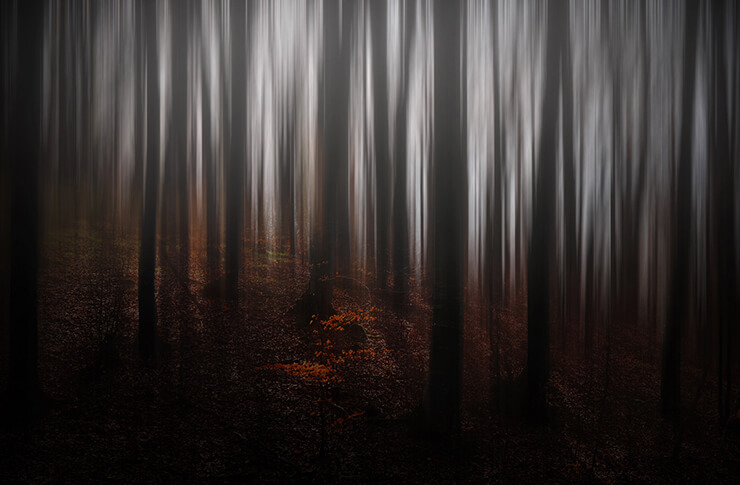“I think that I shall never see a poem as lovely as a tree, ” the modern American poet Joyce Kilmer famously wrote. Of course, a tree is not a poem. The whole point of poetry, indeed of all art, is that it is not natural (as in artificial, artifact, artistic). Art is not what we see in the world as it is, but what we make of the world as we find it. As Kilmer’s concluding verses state, truly if tritely, “Poems are made by fools like me, / But only God can make a tree.”
And those are some trees the Divine makes.
Consider Methuselah, the world’s oldest known living tree, a Great Basin Bristlecone Pine growing in the White Mountains of California, estimated to be between 4843–4844 years old.
And that is some poetry some fools can make, too.
One of the oldest poems in the English language–Old English, to be exact—and one of my favorite poems is The Dream of the Rood. It’s a poem that centers on a tree—not just any tree, but the crucifixion tree.
Scholars estimate that the poem was written in the 8th century. One version is engraved in runes on a 9th century Celtic Cross, and the earliest manuscript version of the poem is from the 10th century–yet a baby compared to old Methuselah.
The Dream of the Rood is an exquisite work of art. It’s the earliest known dream-vision poem in English, a deeply moving work of affective devotion, and an aesthetically rich text. These qualities are wrought from a simple approach to a profound theological idea: the presentation of the crucifixion, death, and resurrection of Christ from the perspective of the tree that bore him: the rood (the Old English word for cross or tree and the one from which we get the modern word rod).
The frame narrative of the poem, a structure a bit like tree rings, begins and ends with a dreamer relaying a dream of a “wonderful tree, lifted in the air, wound round with light, the brightest of beams” telling the story of the crucifixion. In this central part of the poem’s 156 lines, the cross, depicted alternately adorned with gems and blood, relays the battle of a “young hero, ” a battle won, strangely, through seeming defeat. Paradoxically, the tree realizes that loyalty to this lord means assisting in his death rather than fighting for his life, a notion utterly opposed to the values of the warrior culture in which the poem was written.
For the audience of its day, The Dream of the Rood took the familiar notion of sacrifice in battle and turned it upside down. For us today, hearing the story of this ancient “battle” recast by the tree refreshes a story grown overly familiar.
In both contexts, The Dream of the Rood achieves what Percy Bysshe Shelley describes in his Defence of Poetry: “Poetry lifts the veil from the hidden beauty of the world, and makes familiar objects be as if they were not familiar.” The old tree makes things new.
Photograph by mangloard. Sourced via Flickr. Post by Karen Swallow Prior.
___________
Buy a year of Every Day Poems, just $5.99— Read a poem a day, become a better poet. In June we’re exploring the theme Trees.
- Have We Outlived Epic Poetry? Maybe, But Herrera to Rowling Say No - September 25, 2015
- About Shakespeare: Poet and Playwright - August 29, 2014
- Poetry Classroom: A Valediction—Forbidding Mourning - February 27, 2013


Tania Runyan says
Fabulous post, Karen! We just hiked up to see ancient bristlecones at Great Basin National Park two days ago. Very timely.
KSP says
Oh, I’m a bit jealous of you, Tania! But thank you. 🙂
Anne Overstreet says
Fabulous. Always improves my day to read your words. And to think of a bristlecone pine…
KSP says
Wow. Such encouraging words improve my day! Thank you.
Kimberlee Conway Ireton says
Beautiful piece, Karen. I read “The Dream of the Rood” in college and (of course) didn’t really get it. Coming back to it a decade-plus later, I wonder why I didn’t just let myself get lost in the language. It’s truly beautiful. Thanks for reacquainting me with it!
KSP says
Wonderful to hear that you’ve gone back to the piece and enjoyed it, Kimberlee. If we could “get” these great works of literature the first time, there would be no need to go back again and again. Thank you for letting me know that you did go back to this.
Tim says
“Art is not what we see in the world as it is, but what we make of the world as we find it.” This gives me a whole new perspective on artifice (in the older sense of craft and ingenuity) as being what helps us discover the world God has made.
For old lit, my favorite is La Chanson de Roland but I’ve only read it in English as The Song of Roland since Old French and Modern French alike are Greek to me. It’s a ripping good story and includes a nail-biter of a trial at the end. Who could ask for more?
Tim
KSP says
Tim, I’m glad the post gives you new perspective. That is, after all, what poetry does. And sometimes even a bit of prose. 🙂 Thank you.